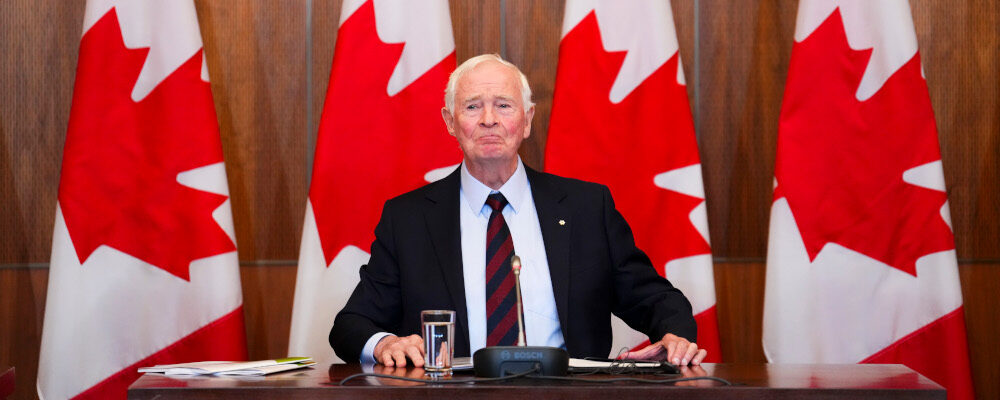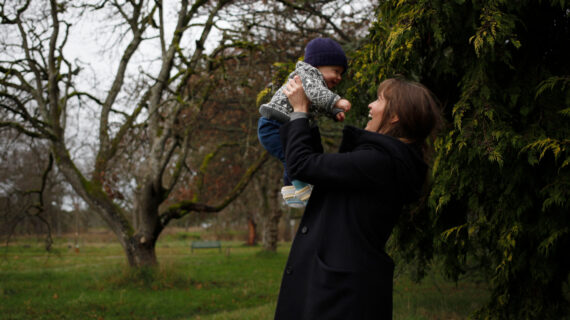An underrated force behind the months-long Chinese interference scandal and even David Johnston’s report this week may be the Canadian establishment’s own self-consciousness about its deep-rooted yet wrongheaded commitment to what one might describe as the “China consensus.”
One gets the sense that the key players involved including the prime minister and the former governor general cannot bring themselves to acknowledge that their basic assumptions about Canada’s relationship with China, its broader place in the world, and the sources of its long-term prosperity were in hindsight misplaced.
They’re so resistant to the idea that they made a misjudgment that they’re prepared to live with the perception that they’re corrupt, politically motivated, and ultimately hiding something. Their egos are big enough, in other words, that they’ve come to misread their own self-interest. They’d rather look sketchy than wrong.
The China consensus began to take shape more than 30 years ago in the triumphalism of the Cold War victory. It assumed as a matter of political economy that China’s integration into the global economy would lead to its political liberalization and ultimately democracy. These forces weren’t just seen as contingent. They were casual.
U.S. foreign policy scholar Henry Rowen even famously predicted in a 1996 essay that China would become a democracy in 2015 based on its economic development patterns and the similar experiences in Japan and South Korea.
Although Canadian business and political elites never quite committed themselves to such firm predictions, they strongly endorsed the notion that greater economic integration with China would invariably put it on the path towards broader liberalization. As recently as 2019, for instance, former Chrétien-era Trade Minister, Roy Maclaren, still spoke of how “deepening trade and investment relations with China…would lead to human-rights advances.”
This wasn’t the source of major partisan disagreement. It was a political consensus that extended from Jean Chrétien to Stockwell Day and virtually everyone in between. Even my former boss Stephen Harper who was elected in 2006 with the most skeptical views about China of any major political figure in decades eventually succumb to the consensus in part due to growing frustration with the Obama administration’s indifference to Canada.
It’s fair to say, though, that the Trudeau government came to office in late 2015 with a renewed commitment to the China consensus. The new government’s so-called “reset” included bilateral free trade talks with China even though Australia and other allies were starting to raise alarms about the Chinese government’s duplicitous model of economic and diplomatic engagement.
Canada’s political class wasn’t alone in its “leap of faith” on China. It has extended it far beyond to the country’s broader establishment including Johnston himself. As National Post columnist Terry Glavin has recently documented, Johnston was as committed to the China consensus as any political figure of the era. He oversaw the establishment of one of the country’s Confucius Institutes and has met Chinese President Xi Jinping several times. Glavin even calls him “an elite capture poster boy.”
This optimism about the opportunities inherent in a burgeoning economic relationship with China was rooted in the long-standing Canadian goal of diversifying our economic and geopolitical dependence on the United States. That Canada had been first to officially establish diplomatic relations with China in October 1970 and many in Canada’s establishment were drawn to China’s top-down technocracy reinforced this predisposition.
I’ve assumed that these Sinophiles at the centre of Canadian business, cultural, and political life persisted in their views about China long after the evidence confirmed otherwise out of a sense of dogmatism. They were so committed to the idea of China as an ideological proposition that they refused to see its backsliding under President Xi on the country’s market reforms and his growing political centralization and crackdowns on personal freedoms using the technologies paid for by our two-way trade.
Even as the political classes in the United States, United Kingdom, and elsewhere came to accept that their own bipartisan versions of the China consensus were wrong, Canada remained a bit of an outlier. We’ve been the slowest to come to this realization. Our exclusion from the Indo-Pacific Economic Framework and the AUKUS security alliance is in large part a result of a perception that the Canadian government has yet to fully move on from the China consensus.

The past few years have provided plenty of evidence to bolster this perception. The Trudeau government’s foot-dragging on banning Huawei equipment from Canada’s wireless networks, its bizarre COVID-19 vaccine deal with a military-connected China company (which Johnston describes as “once promising”), and its failure to act in response to the mounting evidence of Chinese election interference are only the highest-profile examples. As I’ve recently written, notwithstanding the government’s tough talk in its newly-released Indo-Pacific Strategy, its actions suggest that it remains uneasy about the implications of reconceptualizing China as a hostile actor and a geopolitical threat.
The same reluctance is present in Johnston’s report. Although he generally singles out China for foreign interference, he tends to emphasize the more general risk. He never mentions by name the Chinese official at the heart of many of these allegations and defends former Ontario cabinet minister Michael Chan’s proximity to the Chinese consulate in Toronto on the grounds that he’s “admitted it publicly.” He even goes to some length to justify the idea that diplomats posted in Canada will have preferences in our elections and they “may even express those preferences openly or privately.”
These observations read as though they’ve been put forward by someone who’s hesitant to see what he’s actually seen in the intelligence reports. That in and of itself is revelatory. Perhaps it isn’t merely ideology that’s come to blind Canada’s establishment to the true ambitions and activities of the People’s Republic of China. Maybe it’s just ego. Maybe the prime minister, Johnston, and others like them just can’t bring themselves to admit that they were wrong. They cannot acknowledge that their decades-long assumptions about China’s economic and political model and the future of Canada’s global relationships were mistaken. They cannot reckon with the misalignment between their perception of the world and its disappointing yet incontrovertible reality.
It leaves the rest of us however suspended between the two. We continue to live in a country in which the establishment stubbornly clings to a failed consensus on China. The past several weeks—including what Johnston’s report says and doesn’t say—have exposed the consequences. It’s clear to everyone but seemingly those in charge.




